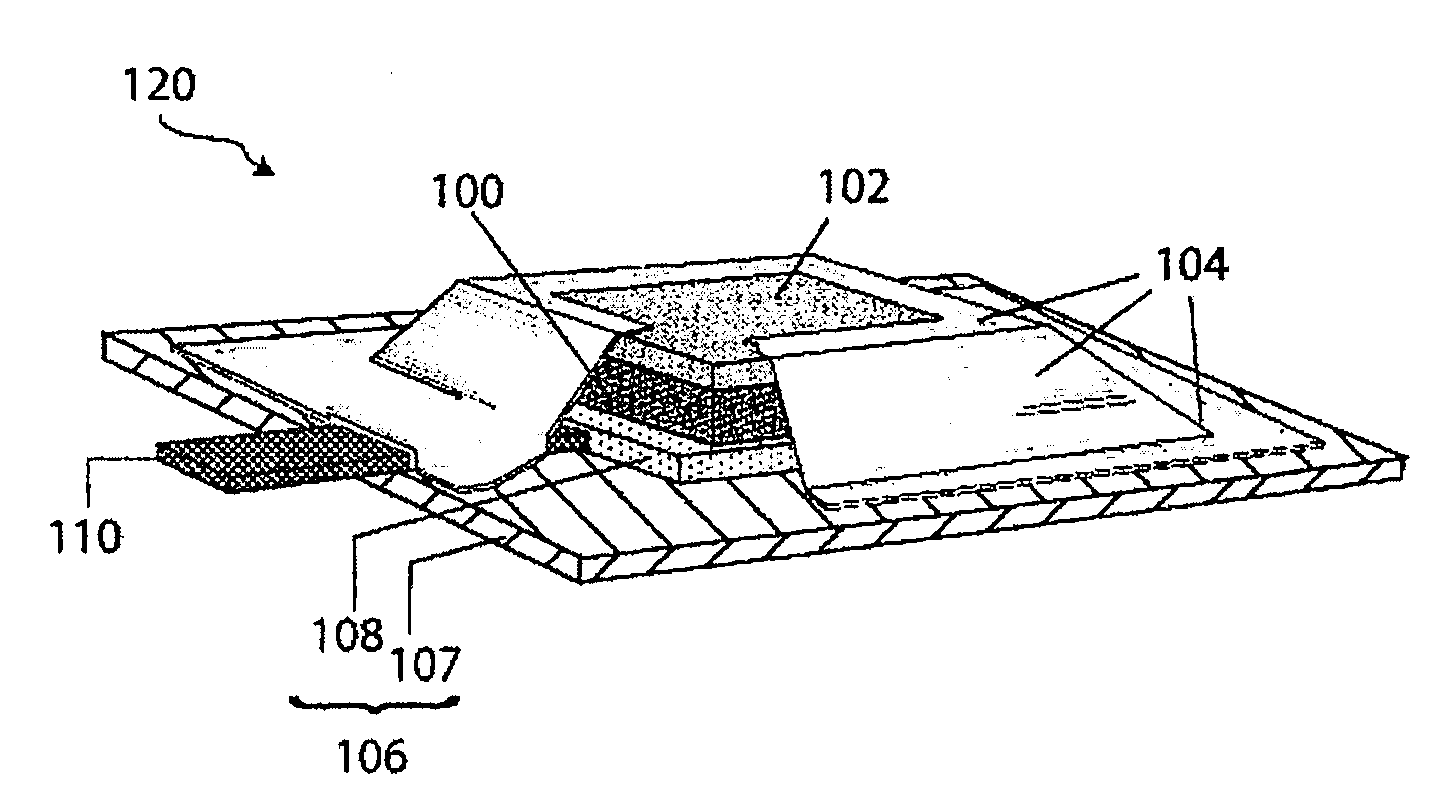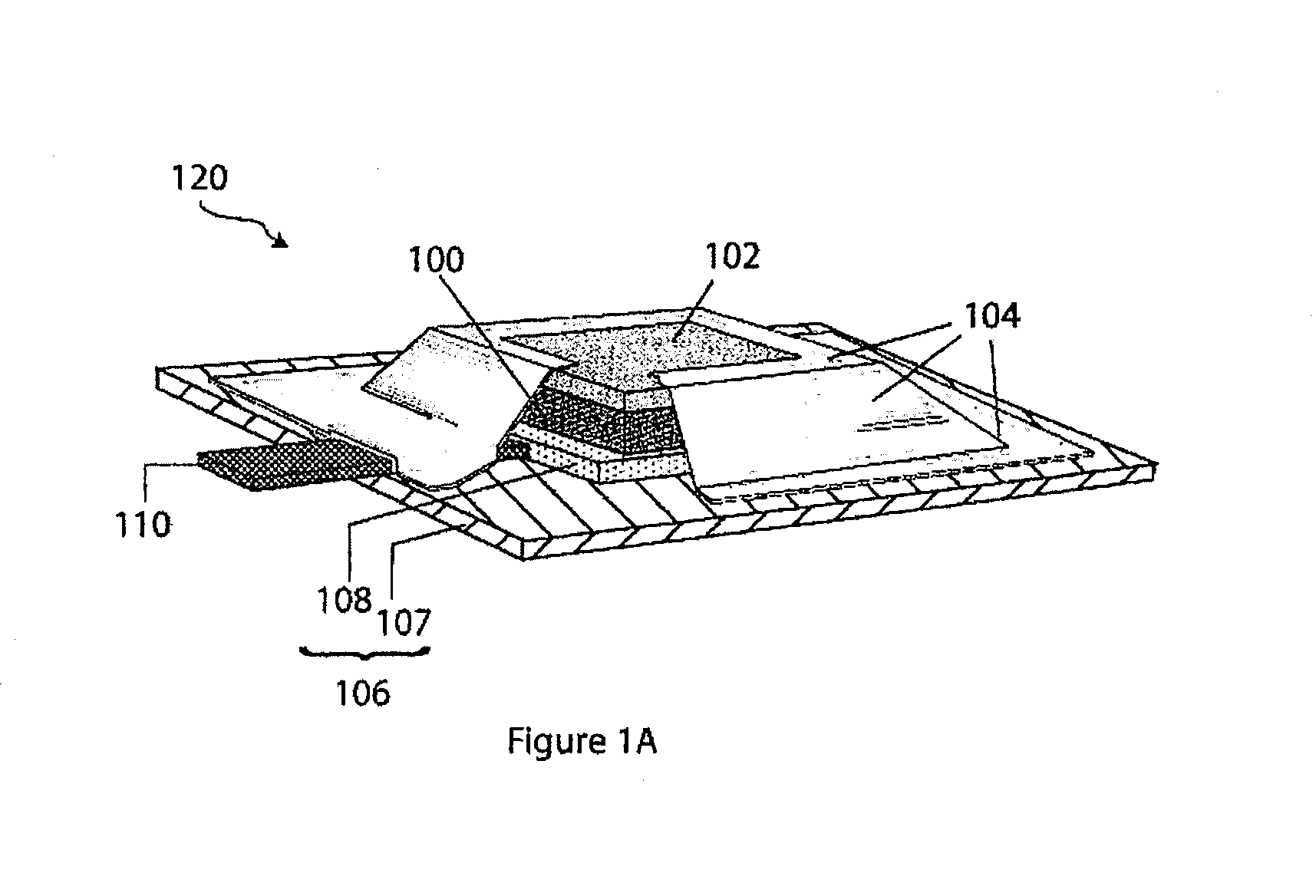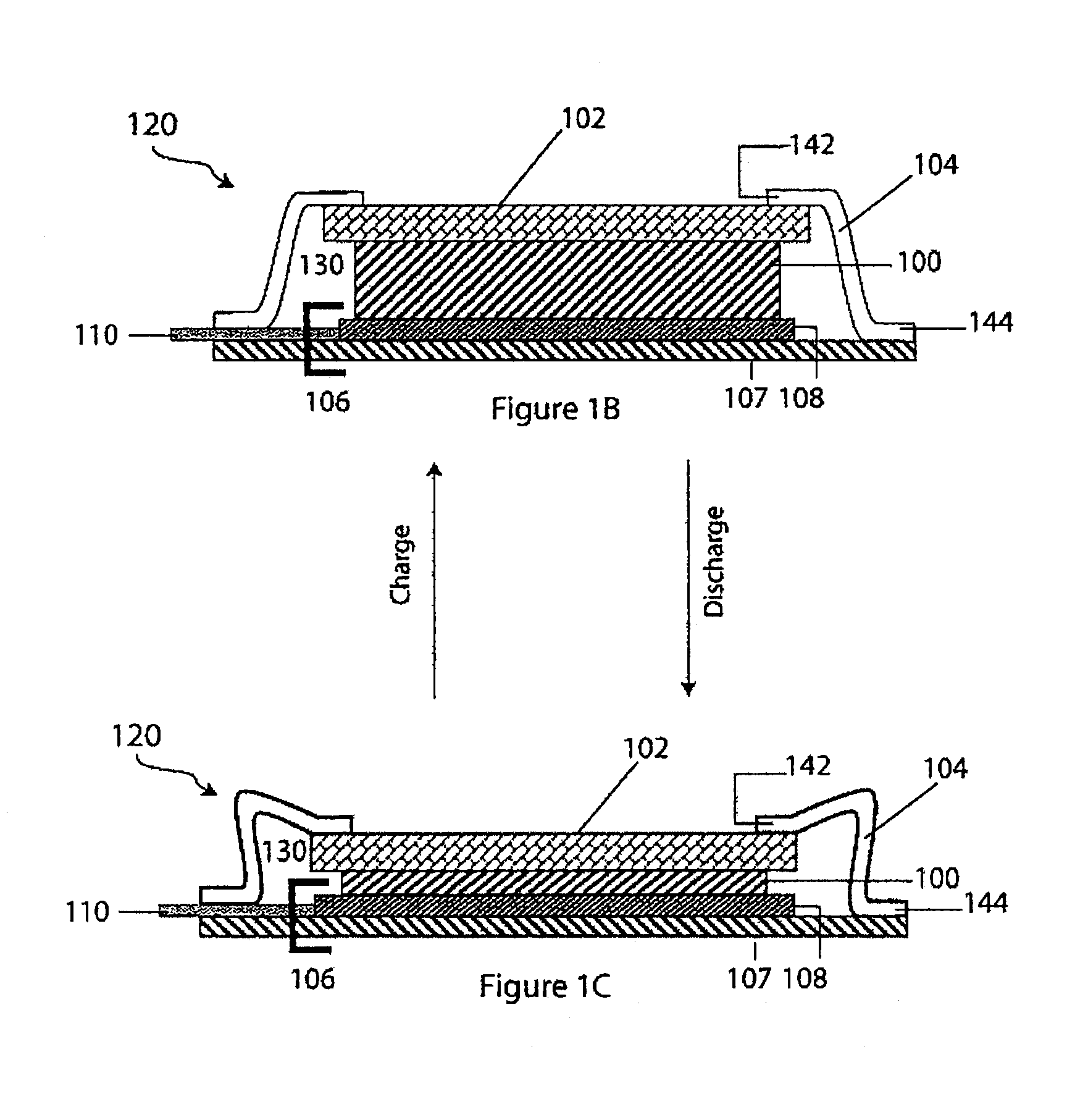Compliant seal structures for protected active metal anodes
a technology of active metal anodes and seal structures, applied in the direction of cell components, sustainable manufacturing/processing, final product manufacturing, etc., can solve the problems of reducing the ionic contact area between the active metal anode and the protective membrane architecture with subsequent performance degradation, degrading performance, and disrupting electrical communication between the two. , to achieve the effect of preventing the loss of volatile components
- Summary
- Abstract
- Description
- Claims
- Application Information
AI Technical Summary
Benefits of technology
Problems solved by technology
Method used
Image
Examples
example 1
Demonstration of Effectiveness of Compliant Seal
[0345]A commercial multi-layer laminate material (MLLM) with the product specification Laminate 95014 (manufactured by Lawson Mardon Flexible, Inc. in Shelbyville, Ky.) was used to make a compliant, hermetic seal to a lithium ion conducting glass-ceramic (GC) membrane. In this case, as well as in all the examples described below, we used the GC membranes, developmental product AG-01, supplied to PolyPlus by the OHARA Corporation. The ionic conductivity of the GC membrane was in the range of (1.0-1.5)×10−4 S / cm. The membrane was a 1″×1″ square with a thickness of 150 micrometers.
[0346]The MLLM product Laminate 95014 has a thickness of 118-120 μm and is made of:[0347]PET—Polyethylene terephthalate, 12 μm[0348]ADH—a two-part polyurethane adhesive[0349]Aluminum foil, 32 μm[0350]EAA—Ethacrylic acid (a primer for the aluminum foil; also improves wetting between LDPE and PET)[0351]PET—Polyethylene terephthalate, 12 μm[0352]LDPE—Low density po...
example 2
Testing of Double-Sided Protected Lithium Anode with Compliant Seal in Seawater Electrolyte
[0357]The same method and equipment as described in Example 1 were used to bond the GC membrane (substantially impervious, ionically conductive layer) surface with the MLLM having a square hole of 22 mm×22 mm. The width of the bond was approximately 1.7 mm. Two such structures were fabricated and then sealed together on three of their sides by bonding the bottom LDPE layers of the MLLMs to each other. The impulse heat-sealer Model 14A / A-CAB (Vertrod Corp.) with modified jaws was used for this operation. The resulting open-ended bag had two GC plates bonded to the MLLMs.
[0358]A lithium electrode was fabricated in the dry room by pressing two square 22 mm×22 mm pieces of Li foil with a nominal thickness of 0.6 mm (FMC Lithium Inc.) on both sides of Ni foil current collector having the same dimensions and a thickness of 50 μm. The pressing operation was performed in a die with polypropylene block...
example 3
Long-Term Testing of Double-Sided Protected Lithium Anode with Compliant Seal in Aqueous Electrolyte used in Li / Air Cells
[0367]In this example, the compliant seal structure included an inorganic layer of SnNx in the bonded area of the GC surface.
[0368]Pre-Forming the MLLM
[0369]In this case, the MLLM was molded into a preformed frame. Such preforming allows for use of significantly thicker Li foils compared to those used with the unformed MLLMs. Also, it ensures more uniform shrinking (collapsing) of the compliant seal during anode discharge. One more benefit is the potential reduction of the wasted volume of the anode compartment, depending on the frame geometry.
[0370]In the first step a square 43 mm×43 mm sheet of MLLM was molded into the shape 1 shown in FIG. 17A using a steel die and applying a pressure of 500 kg. The height H was approximately 1.2 mm and the width of the top W1 was 26 mm. The edges of the bottom step were cut, making its width W2 equal to 2 mm. The bottom openin...
PUM
| Property | Measurement | Unit |
|---|---|---|
| thickness | aaaaa | aaaaa |
| thickness | aaaaa | aaaaa |
| thickness | aaaaa | aaaaa |
Abstract
Description
Claims
Application Information
 Login to View More
Login to View More - R&D
- Intellectual Property
- Life Sciences
- Materials
- Tech Scout
- Unparalleled Data Quality
- Higher Quality Content
- 60% Fewer Hallucinations
Browse by: Latest US Patents, China's latest patents, Technical Efficacy Thesaurus, Application Domain, Technology Topic, Popular Technical Reports.
© 2025 PatSnap. All rights reserved.Legal|Privacy policy|Modern Slavery Act Transparency Statement|Sitemap|About US| Contact US: help@patsnap.com



